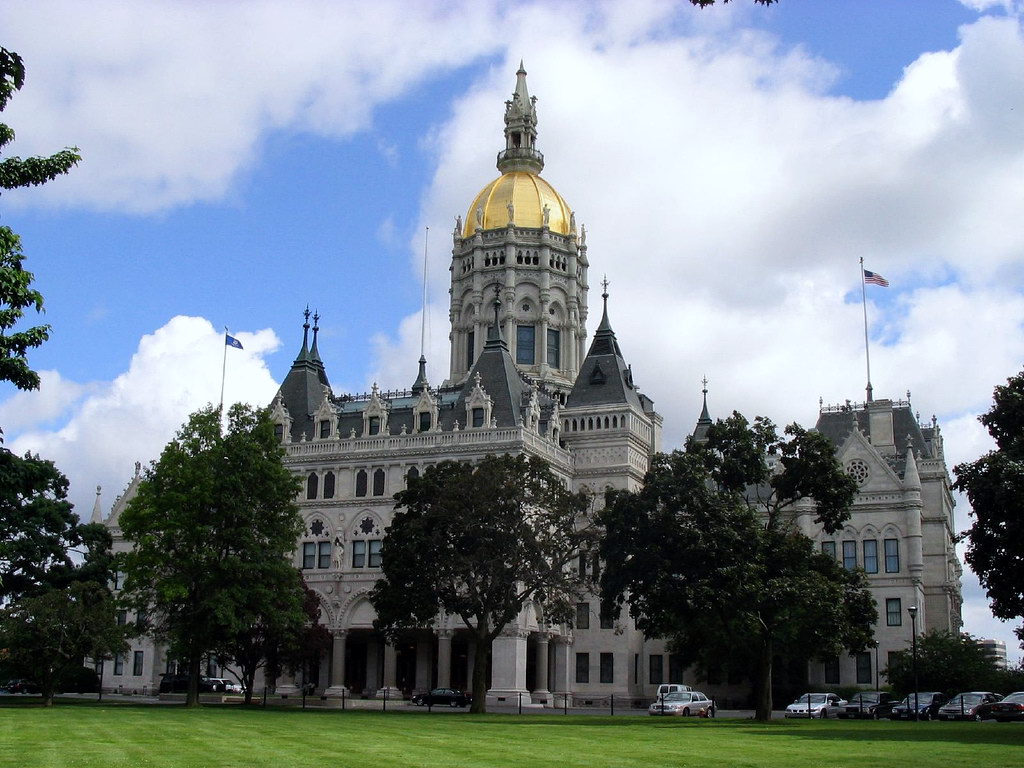The budget package passed by the Finance, Revenue and Bonding Committee includes more than $1 billion in new taxes by 2023 coupled with some targeted tax credits, according to the fiscal note attached to the bill.
The new taxes include a “consumption tax” on the income of those earning more than $500,000 per year, a capital gains surcharge, a tax on digital advertising, retaining the corporate tax surcharge and a highway use tax on trucks.
The new taxes would fall, by and large, on Connecticut’s wealthy residents, part of Democrat leaders’ push for more “progressivity” in the state’s tax code. The consumption tax – which acts essentially a second income tax – would bring in an additional $500 million per year and the capital gains surcharge would add another $262 million.
The digital advertising tax would bring in an estimated $162 million per year by 2023 and would grow to $201 million by 2026. The highway use tax would bring in $45 million in its first year and than rise to nearly $100 million in the next three years.
The estimated $1 billion doesn’t include a voluntary payroll tax and taxes on legalized marijuana and sports betting, which would add another $114.8 million combined in the first year.
However, the proposal also includes a state child tax credit costing $300 million, expansion of the Earned Income Tax Credit, extension of tax exemptions for retirement income and elimination of the admissions tax for entertainment venues like amusement parks and stadiums. It would also include a one-year suspension of Connecticut’s one percent tax on restaurant meals.
After incorporating the various tax credits and the loss of federal COVID relief funds in two years, Connecticut’s state government would net an additional $692 million by 2026, according to the fiscal note.
But much of the Finance Committee’s budget is in question as Democratic leaders enter into budget negotiations with Gov. Ned Lamont’s administration. The governor has remained steadfastly opposed to raising taxes when Connecticut is enjoying budget surpluses, federal support and a maxed-out reserve fund.
Although Connecticut was poised to enter the biennium facing deficits, surging tax receipts and federal relief funds have bridged the gap. The state still faces potential deficits for fiscal years 2024 and 2025, but will have $3 billion in the Rainy Day Fund.
Republican leaders are also sounding the alarm over a new Connecticut Equitable Investment Fund outlined in the Finance Committee’s budget that would capture almost all of the new tax revenue and distribute it to cities in the form of various social programs, business loans and job training.
The CEIF would be managed by a nine-member panel, including only two elected officials – the governor and the state treasurer.
House Republican leadership sees the CEIF as an attempt to raise taxes and a way to avoid the state’s spending cap and spend taxpayer dollars without legislative oversight and have asked Attorney General William Tong to review the proposed fund and determine whether or not it is constitutional.
Democratic leaders including Senate President Pro-Tem Martin Looney, D-New Haven, and John Fonfara, D-Hartford, see the CEIF as a way to bolster cities that have seen reductions in state funding over the years, particularly for tax-exempt properties in cities like New Haven and Hartford.
Less than a month remains in the legislative session, with numerous big-ticket items like legalized marijuana and sports gambling on the agenda. The legislature will also have to work with the Lamont administration to determine how to spend $2.6 billion in federal relief funds.


Thad M Stewart
May 13, 2021 @ 5:46 pm
THESE OUT OF CONTROL POLITICIANS CAN’T MANAGE THE MONEY THEY HAVE, WHY ON GOD’S GREEN EARTH WOULD WE GIVE THEM MORE? tHE PEOPLE OF THIS STATE SERIOUSLY NEED TO HAVE THEIR HEADS EXAMINED.
bonniesue eden
May 24, 2021 @ 7:25 am
People paying taxes in one community should not end up funding cities they dont lIve in Hold elected officials acCountabLe for ruining their cities don T give them more money!
nuttymegger
May 26, 2021 @ 10:15 am
Tax, Tax. Tax. That’s all ct knows what to do. that, and spend. Spend. Spend. the crooked politicians need to be ousted. how the left has remained in power is baffling.
Daniel L. Healy, Esq.
May 27, 2021 @ 6:40 am
WHAT SHOULD BE DONE INSTEAD, MARC?
CRITICISM WITHOUT DEFINING YOUR POSITION AND PARTY AFFILIATION RINGS HOLLOW AND PARTISAN.